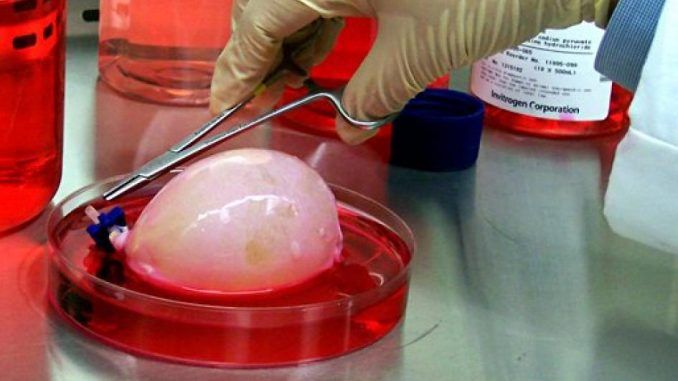
Scientists have unveiled a new gene engineering technique that they say allows them to grow human organs in a lab for transplants.
Researchers from the University of Southampton in the UK say they have found a breakthrough method of assembling modified DNA fragments using a technique called ‘DNA ligation.’
Futurism.com reports: In a study published in the journal Nature Chemistry, the researchers showcased a purely chemical technique for gene assembly. It uses an efficient and rapid-acting chemical reaction called click chemistry that puts together multiple modified DNA fragments into a gene — a process called click DNA ligation.

BYPASS THE CENSORS
Sign up to get unfiltered news delivered straight to your inbox.
You can unsubscribe any time. By subscribing you agree to our Terms of Use
“Our approach is a significant breakthrough in gene synthesis,” University of Southampton Chemical Biology Professor and Lead Researcher Ali Tavassoli said in a press release. “Not only have we demonstrated assembly of a gene using click-chemistry, we have also shown that the resulting strand of DNA is fully functional in bacteria, despite the scars formed by joining fragments.”
HUMAN GENOME SYNTHESIS
Although plans to synthesize the human genome from scratch have been received with mixed feelings and ethical considerations, its appeal comes from the possibilities it has to offer. According to GP-write, an international effort working on engineering large genomes, applications of DNA synthesis include growing transplantable human organs from scratch, engineering viral immunity and cancer resistance, and even allowing for more efficient and cost-effective drug development and testing.
Ethical quandaries notwithstanding, synthetic DNA is promising. With it, we could be looking at better ways to treat DNA-based diseases, or edit them out altogether — ultimately, extending human life or even potentially creating it from scratch, so to speak. “Genome synthesis will play an increasingly important role in scientific research,” Tavassoli explained. He believes their approach will make it more possible.
A shortcoming of current methods involves the extensive use of enzymes, which can’t be incorporated into certain sites that control the expression (i.e., the switching “on” or “off”) of genes. This so-called epigenetic information can be crucial to better understand biological processes, e.g., cancer, which couldn’t be cured too soon.
“The synthesis of chemically modified genes, which we have achieved by a radical new approach, will become ever more important as the effects of epigenetically modified DNA on gene expression become clear,” study co-author Tom Brown said in the press release.
Furthermore, the chemical method could also greatly accelerate the synthesis of larger DNA strands, producing larger quantities of a single gene. “We believe our purely chemical approach has the potential to significantly accelerate efforts in this vitally important area, and ultimately lead to a better understanding of biological systems,” Tavassoli added.


